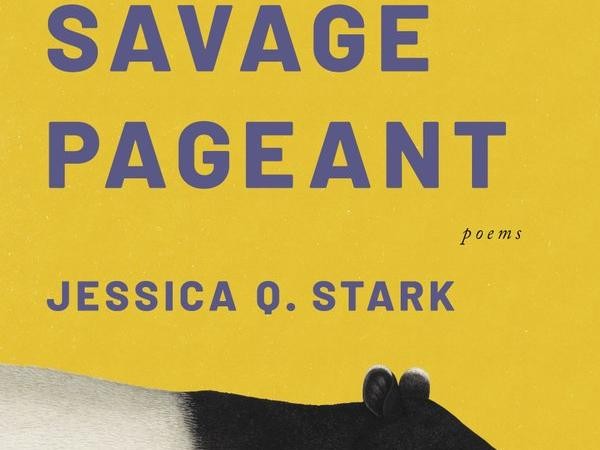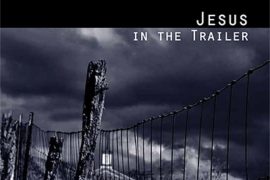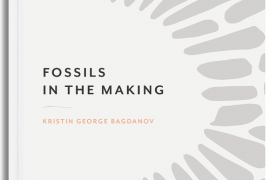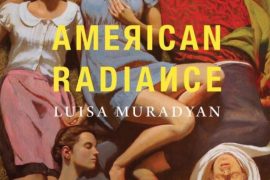In many ways, a poetry collection is an archive, one that seeks to preserve memories and experiences. Jessica Q. Stark’s debut collection Savage Pageant gives readers a glimpse of the personal, but it also provides the space to examine history, the politics of geography, and what it means to be a citizen navigating the complexities of such a gray world. The collection is expansive, and in one moment we can be witnessing the spectacle of Jungleland (a zoo that once housed Hollywood’s show animals up until its closure in 1969), and in the next we can be a Los Angeles Cemetery, feeling the bones and rumors beneath the soil. In other moments we are with the speaker reflecting on motherhood and the uncertainty that comes with such responsibility:
What
we really wanted was inelegant:
a clean break from the spectacle
with gas station snacks
and water when we needed.
My grandmother had eleven pregnancies and
an infection.
My mother had four and wished for boys.
Sometimes you can’t put all the bones
back where they’re supposed to go.
I had a boy and they took you out with a knife.
(from “Savage Pageant: A Genealogy”)
Perhaps the past (and all that it comes with it) can be reconciled in a way that would satisfy the present, but Savage Pageant reassures us, like all great poetry does, that we can come to terms with our histories, and that sometimes “even if [we] can’t / jump ship [we] might not / need to find [our] way home.”
Esteban Rodriguez, Interviews Editor
The Making of Savage Pageant
Before I had an idea of a book, I had an idea of a place. Jungleland was one of the names of a zoo that held Hollywood’s celebrity animals up until its closure in 1969. Gossip, rumor, and misinformation inform the contours of this place and thus, this book. Prior to writing, I obsessed over Jungleland—its history, its founders, its relationship to animals, celebrity, landownership, and entrepreneurism—for roughly two years. I browsed arcane Internet forums and dug up images of the stage performers that “tamed” tigers there, including one that happened to share my last name. I talked on the phone to three people that remembered going there that still live in California. One described a childhood memory of dusk punctuated by a “distant cloud” of lions roaring in the suburb he lived in outside of Los Angeles.
The deeper I dove the more Jungleland became a receptacle for so much else—namely, my interest in how Americans interact with animals, objects, and people as forms of spectacle and the residual pleasure and violence of this type of consumption in US history. During the beginning stages of writing the book, I became pregnant with my first child. And I taught in front of undergraduates with an enlarging belly over two semesters. Did you know some people gasp when they see a pregnant belly? It is on the one hand so rote, yet so reliably shocking. And pleasing, in often unsettling ways. I began to feel like a spectacle myself. And a bit hysterical for bringing a child into a violent world. These facts also inform the book’s composition.
In addition to histories of Jungleland speaking to my body, however, I was particularly interested in this site for examining accumulative, slow violence and its repercussions—psychologically, but also literally. Like: what’s in the soil? What is actually in there? Or the trace substance in water pipes and its relationship to mass hysteria. I want to link histories that we often keep separate as a means of self-preservation and/or national denial. And I don’t think it’s a stretch.
Close to the site of Jungleland was one of the worst nuclear partial meltdowns in US history. I grew up very close to this piece of land and traces of this disaster that had been covered up for decades. If you look to the earliest records of land acquisition of what would later be called Jungleland, there are serendipities that move back and forth in time. A glamorous convertible speeding backwards, preserving Jayne Mansfield’s head and undoing her pact. The suicidal tiger tamer that bore my inherited surname. Exploited Native Americans workers warned of drought and unfathomable disasters that would later occur on that land, as well as the specificity of the burn pits after nuclear collapse.
Savage Pageant, like the site of Jungleland, rewards a careful reader. There are fingerprints and all sorts of bits of hair and fur and blood throughout, linking poem to poem to image to map. To your latest lunch, of course. In its final revisions, there were mostly only additions. I don’t think they stand suitably on their own and I have not made heavy attempts to publish them alone. Together, though, they might produce some kind of distant sound for a vigilant reader—something cloud-like, vaguely familiar, and threatening.




